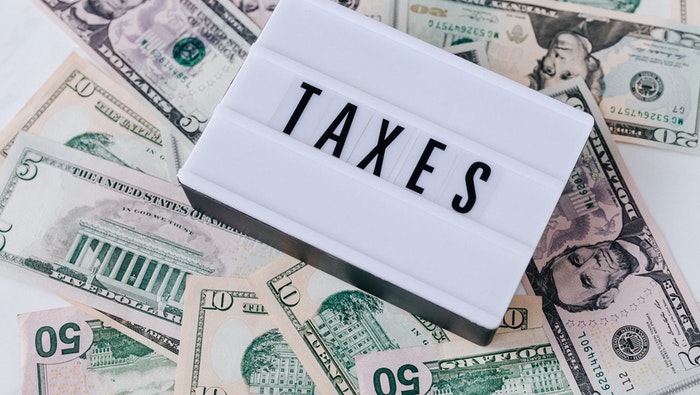Keeping a finger on the pulse of relevant tax changes is one of the key responsibilities of accounting and finance professionals, and it’s a big job. During the first half of 2021, there were the requisite sales tax rate changes, as always, but there were also several notable policy changes. To top it off, state and local COVID-19 tax relief measures continue to complicate sales and use tax compliance for certain industries.
Read on for highlights and insights.
Florida, Kansas, and Missouri complete the Wayfair puzzle
When Supreme Court of the United States overturned the physical presence rule in South Dakota v. Wayfair, Inc. (June 21, 2018), it provided a path for states to tax remote sales. Prior to the Wayfair decision, states were largely restricted to taxing sales by businesses with a physical presence in the state. Wayfair gave them the authority to base a sales tax connection obligation solely on a remote seller’s sales activity in the state, or economic nexus.
Many states quickly jumped at the opportunity offered by Wayfair. New York determined its sales tax laws allowed it to enforce economic nexus “immediately after the Wayfair ruling.” Hawaii, Maine, and Vermont showed little more restraint, enforcing it within days of the decision. By the end of 2018, 22 states required certain businesses with no physical presence in the state to collect and remit sales tax. Another 20 states and Washington, D.C., followed their lead in 2019.
As 2021 dawned, Florida and Missouri were the only two states with a general sales tax that didn’t have an economic nexus law. Both enacted economic nexus during the first half of the year. The sea change that began with Wayfair is now complete — or as complete as inconstant sales tax laws can ever be.
Florida began enforcing economic nexus on July 1, 2021, but Missouri needs more time to sort out local sales and use tax issues. The state has one of the most complicated local tax schemes in the country, with approximately 2,000 different local taxing jurisdictions. Recognizing this, lawmakers have given local governments and the Missouri Department of Revenue until January 1, 2023, to implement necessary changes.
The situation in Kansas is a bit different. The Kansas Department of Revenue began enforcing economic nexus policy in August 2019, but unlike other every other state with economic nexus, it didn’t provide an exception for small sellers. That changed with the enactment of Senate Bill 50. Effective July 1, 2021, businesses with no physical presence in Kansas must register only if they have more than $100,000 of cumulative gross receipts from sales to customers in the state in the current or immediately preceding calendar year. Companies selling beneath that threshold are off the hook unless they have another nexus-triggering event, such as a physical presence in the state.
Marketplace facilitator laws
If economic nexus laws give states the authority to require out-of-state sellers to register then collect and remit sales tax, marketplace facilitator laws dictate who’s responsible for the tax when the transaction occurs through a marketplace platform — the Amazons, eBays, and Walmarts of the world.
Every state with sales tax requires (or soon will) marketplace facilitators to collect and remit the tax due on third-party as well as direct sales. This ensures all marketplace sales are taxed, even if marketplace sellers don’t meet an economic nexus threshold.
Marketplace laws can make life easier for individual sellers by lifting the collection burden from their shoulders. Yet they can also complicate compliance for these retailers because of old-fashion physical presence nexus.
For the most part, states consider inventory housed in the state to be a physical presence nexus trigger, even if the inventory is managed by a third party like a marketplace facilitator. Thus, businesses selling directly to consumers in a state where they have inventory stored for sale likely need to register in that state and collect and remit sales tax on their direct sales. Economic nexus laws don’t require this; physical presence does.
Unfortunately, marketplace sellers aren’t always kept apprised of where their inventory is stored; marketplaces sometimes move inventory from one state to another to reduce shipping times. Nevertheless, a seller may be held liable for sales tax based on inventory — even inventory moved digitally.
It’s your job to ensure your company is complying with sales tax laws in all states where you have nexus, whether it was created by economic activity, physical presence, or an affiliate relationship. Taking a sales tax risk assessment can help put you on the path to compliance.
The evolution of COVID-19 tax relief
Created to help businesses struggling under the impact of COVID-19, federal, state, and local tax relief measures can complicate work for accounting departments. Among other considerations, it falls to comptrollers to determine whether the business qualifies for aid. If it does, you need to ensure the tax due is paid in full when eventually due.
Giving businesses more time to pay or file taxes can throw a wrench in existing systems. The tax businesses are trusted to collect from consumers isn’t theirs to spend, though state and local officials gave them tacit permission to use it for their own purposes (e.g., for payroll or to pay suppliers) when they pushed back the due dates. It’s incumbent on accountants and bookkeepers to ensure the business can remit the tax when it’s due.
Controllers also need to be on the lookout for other COVID-19 tax relief policies. For example, Virginia temporarily exempted personal protective equipment earlier this year, as Puerto Rico did in 2020. The Virginia exemption was to expire “the first day following the expiration of the last executive order issued by the Governor related to the COVID-19 pandemic and the termination of the COVID-19 Emergency Temporary Standard,” which occurred on July 1, 2021. Did the temporary exemption in fact expire? It’s your job to know.
To learn more about what states have been up to in 2021, and how that can affect your businesses, read Avalara’s 2021 sales tax changes report: midyear update.

Gail Cole is a Senior Writer at Avalara. She’s on a mission to uncover unusual tax facts and make complex laws and legislation more digestible for accounting and business professionals.




